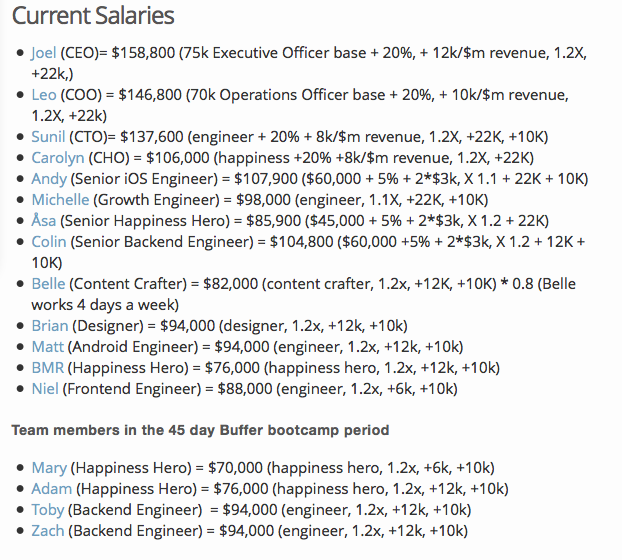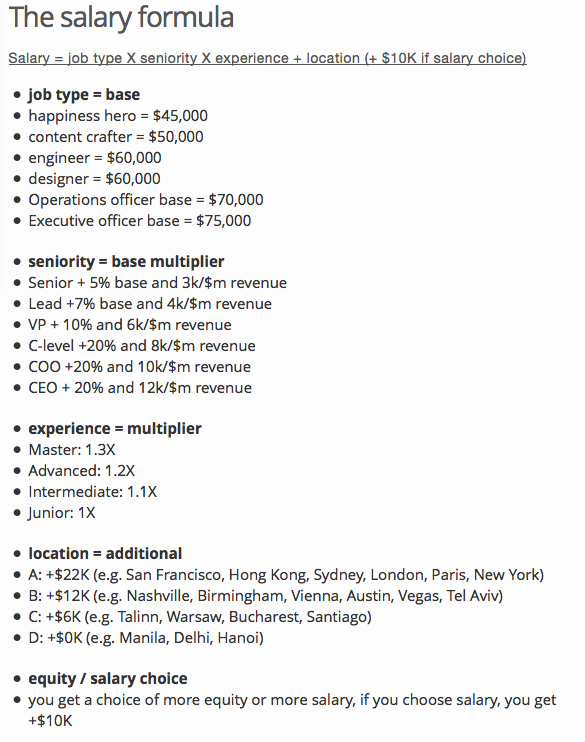Using salary transparency to increase workplace productivity

How important is workplace happiness? Well, if you’ve ever put in time at a crappy job (and of course you have), you know full well that employee happiness can lead to better productivity.
But what makes employees happy? Money? Setting their own work schedules? Beer and a ping-pong table in the break room?
I recently read two interesting articles about how businesses are turning long-held salary practices on their heads in order to make employees happier, and therefore, more productive.
The first, written by Peter Baumgartner for Entrepreneur, is titled “4 Reasons You Should Let Your Team Set its Salaries.” It talks about the benefits of self-determined salaries, which sounds, on the surface, like absolute crazy talk. Letting employees decide their own salaries seems like a great way to go bankrupt, quickly.
But studies and real-life examples have shown that, when given the opportunity to self-determine their salaries, people generally make rational, realistic decisions. Why? Simply because they were given the opportunity to do so. Turns out, employees like being treated like intelligent, autonomous adults. Who knew?
The practice also leads to a team-building, “we’re all in this together” mentality. As Entrepreneur points out:
Companies that use self-selected salaries report that people who choose to earn on the higher end of the spectrum will forego raises and even decrease their own salaries voluntarily in times of low profit, while lower earners are often encouraged by team members to raise their salaries when they've achieved successes. This provides a strong sense of cohesion, the feeling that everyone is in it together and that what benefits the individual benefits the whole.
The post points out that transparency — being open about what everyone makes — is a great way to keep employees from feeling like everyone else is making more, which leads to feelings of being undervalued and, eventually, can cause someone to leave a job.
Transparency is also what the second article is about. Written by Roberto A. Ferdman for Quartz, “Why a Startup Just Published All of its Employees’ Salaries for the World to See” is about a San Francisco-based startup called Buffer that recently posted its employees’ salaries for all the world to see:

CEO Joel Gascoigne wrote in the blog post that revealed the earnings that,
"We hope this might help other companies think about how to decide salaries, and will open us up to feedback from the community."
Whether or not this very well-publicized stunt achieves that goal remains to be seen. However, now everyone at Buffer knows what everyone else is making, and more importantly, they know why they’re making that.
Because along with the salaries (none below $70,000 a year, if you’ll notice. Buffer, call me), Gascoigne published the salary formula:

While it’s tempting to dismiss both of these salary tactics as something only a startup hiring millennials could get away with, it’s worth pointing out that the example Entrepreneur uses of a business successfully using the self-determined salary tactic, Semco, has been doing so since the 1980s.
So maybe salary transparency is something that could work for your business, and maybe it isn’t. But it’s interesting and exciting to see that businesses are starting to think beyond Casual Friday as they consider ways to make employees happier, and ultimately, more productive.




